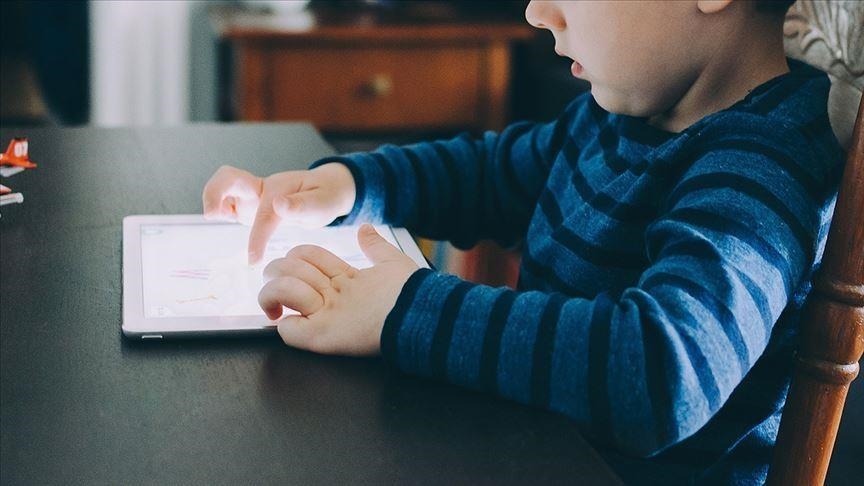Asia-Pacific countries take steps to protect children from social media harm
Australia became 1st country to ban social media for under 16s, whereas India requires verifiable parental consent for under 18s

ANKARA
Despite the lack of local representatives from social media companies, countries in the Asia-Pacific region have taken steps to protect children from the negative aspects of social media, such as restricting access to content containing sexual material, violence, and disinformation.
According to the World Health Organization (WHO), more than 10% of adolescents worldwide are negatively affected by problematic social media use.
As problematic social media use continues to rise globally, it is causing mental and physical health issues among adolescents.
Australia 1st country to ban social media for under 16s
Australia became the first country to ban social media for under 16s.
On Nov. 28, the Australian Senate passed a bill banning social media access for children under 16 by a vote of 34 to 19.
This bill will take effect after one year granted to social media companies to implement the necessary regulations.
Within a year, social media platforms must enforce measures to block access for users under 16.
Global platforms, including Facebook, TikTok, Snapchat, Reddit, Instagram, and X, face fines of up to $33 million if they fail to comply with the law.
New Zealand opposition stresses to follow Australia
While no legal regulation currently exists on the matter in New Zealand, developments in Australia are being closely monitored.
Prime Minister Christopher Luxon said they are carefully observing Australia's social media ban.
Opposition leader Chris Hipkins expressed openness to a similar approach, saying he would support such a measure if convincing evidence of its effectiveness is presented.
However, no concrete steps have been taken on the issue in New Zealand so far.
Indonesia may follow Australia’s lead on social media restrictions
Indonesia is considering following Australia's example in restricting social media use for children.
Imran Pambudi, an official from the Health Ministry, referred to Australia’s ban on social media access for children under 16, suggesting that the Indonesian government could consider a similar measure, but he emphasized that such a change would not happen overnight.
Pambudi also noted that, for now, parents are responsible for monitoring their children’s social media use.
He estimated that implementing such regulations could take at least three years.
Malaysia to take legal action against unlicensed social media companies
Malaysia's Deputy Minister of Communications Teo Nie Ching announced plans for a new licensing framework for social media platforms in the country.
The Malaysian Communications and Multimedia Commission (MCMC) highlighted in August that social media companies must follow national laws.
Starting Jan. 1, 2025, all social media companies must obtain a license from MCMC to operate in Malaysia.
Companies will face legal action if they fail to secure a license.
India requires verifiable parental consent for those under 18
India currently has no age restriction regulations for social media access.
However, under the 2023 Digital Personal Data Protection Act, children under 18 must obtain verifiable parental consent for the processing of their personal data.
This requirement does not restrict access to social media for minors.
The Indian government is also considering measures to combat the spread of disinformation on social media.
South Korea plans to regulate children's use of social media
South Korea currently has no legal restrictions on children’s access to social media.
However, the government is considering introducing a ban on social media use for children.
According to local media, authorities are exploring the possibility of setting an age limit of 14 or 16 for access to social media accounts.
Japan discusses general measures for social media use
Japan debates measures to tackle disinformation on social media and address defamation targeted at individuals and organizations through anonymous accounts.
In May, a law revision passed by the Japanese parliament mandated social media platforms to establish transparent procedures for removing online defamatory content.
Platforms are also required to respond promptly to allegations of online defamation.
As part of the law revision, social media companies must create contact points to handle content removal requests and clearly define the criteria for removing posts.
Foreign intervention law in Singapore
Under a law that came into effect in Singapore in 2022, social media companies are required to block access to harmful content on their platforms within hours.
If companies fail to comply with this law, the Infocomm Media Development Authority (IMDA) can instruct internet service providers in the country to block access to the content.
Bangladesh claims social media firms not complying with law
Though there are no laws in Bangladesh prohibiting children from using social media platforms, the government has made attempts to reach social media companies to prevent the spread of misinformation and violent content. The government made an effort to achieve this by restricting access to mobile network services.
In August, Bangladesh shut down the mobile internet network to block access to popular social media platforms like Instagram, TikTok, WhatsApp, and YouTube.
The government announced that the decision to block access to social media platforms was made in response to combating disinformation, claiming that social media companies were not complying with Bangladeshi laws during violent protests.
After the departure of deposed Bangladeshi Prime Minister Sheikh Hasina on Aug. 5 and the establishment of a temporary government, the ban was lifted.
*Writing by Muhammed Enes Calli in Istanbul
Anadolu Agency website contains only a portion of the news stories offered to subscribers in the AA News Broadcasting System (HAS), and in summarized form. Please contact us for subscription options.







